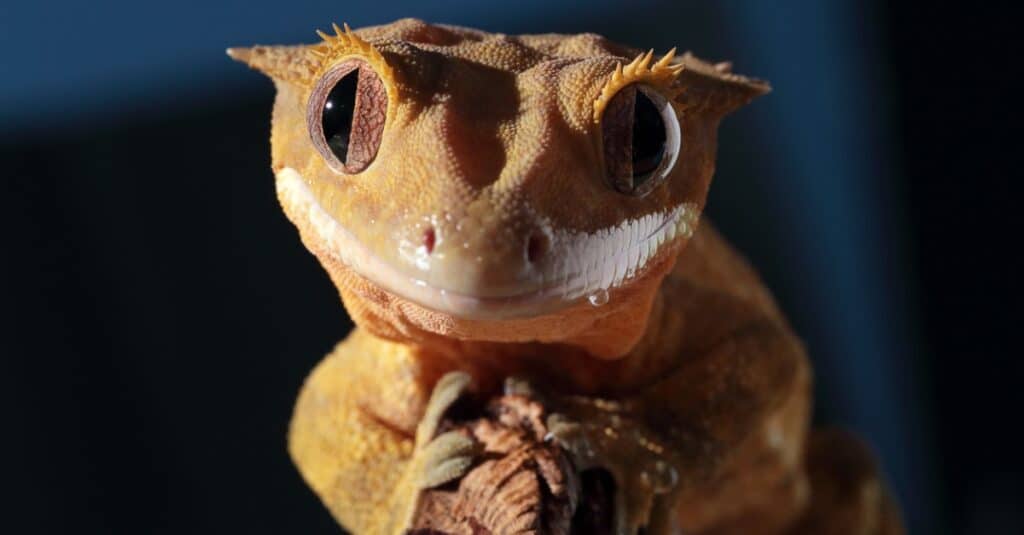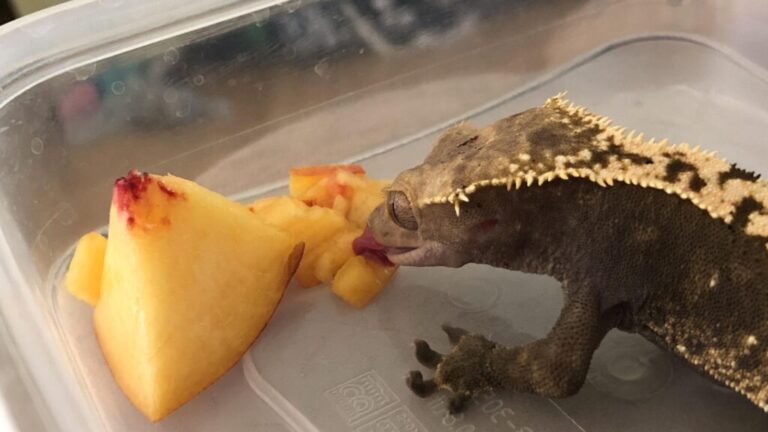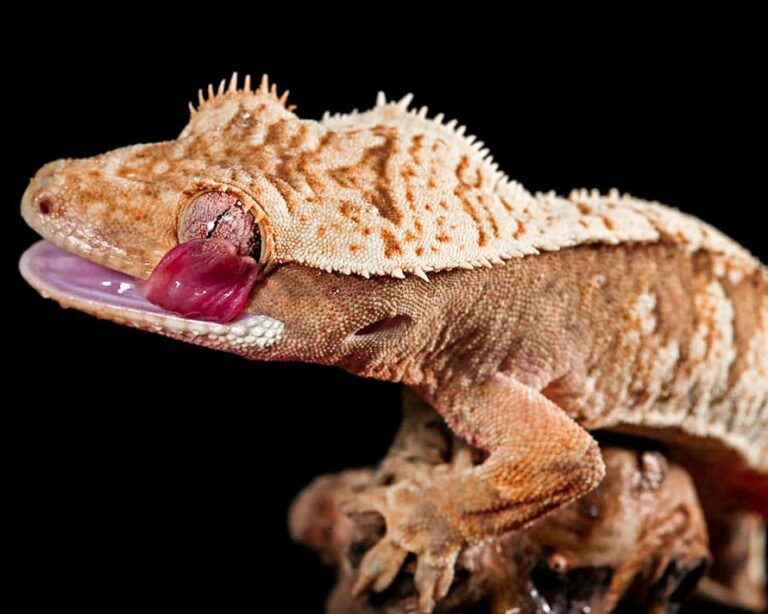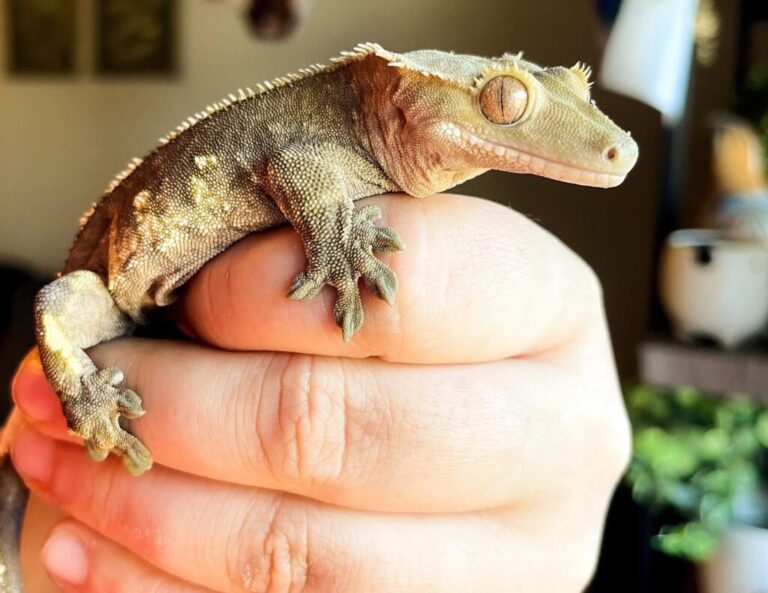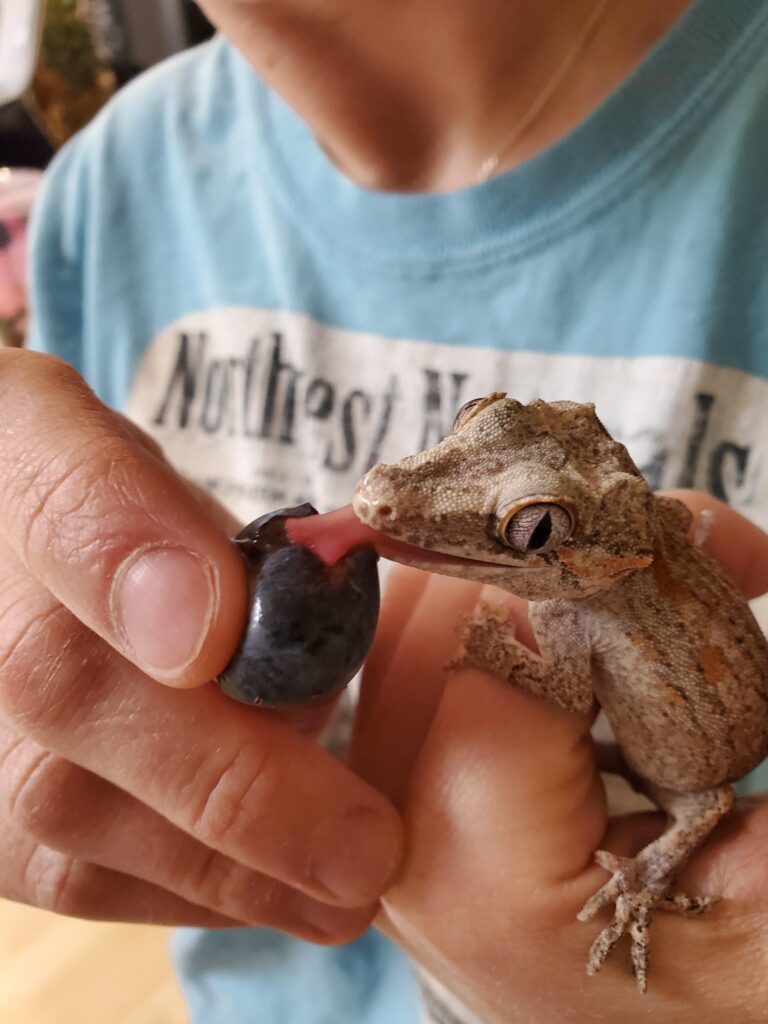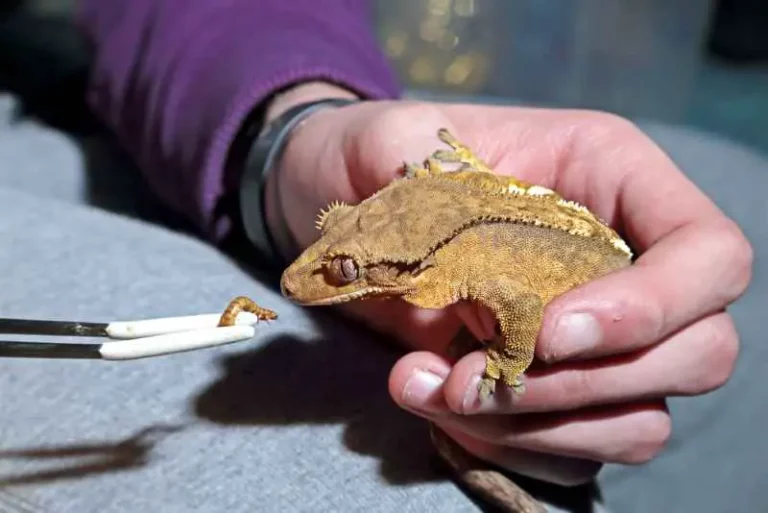Do Crested Geckos Make Noise? Unveiling the Silent Beauty
As I embarked on my journey into the captivating world of reptiles, I found myself drawn to one enigmatic creature that seemed to defy the stereotype of noisy, chatty pets. Meet the Crested Gecko, a stunning and mysterious reptilian wonder that has been quietly captivating the hearts of reptile enthusiasts worldwide. If you’re like me, you might be wondering, “Do Crested Geckos make noise?
Yes, they are notably expressive creatures, readily conveying their emotions through distinctive vocalizations. Their communication repertoire typically includes a distinctive “chirping” or “barking” sound, serving as a clear indicator of their mood.
So, let get start the journey together.
Decoding the Language of Crested Geckos: What Do Their Noises Mean?
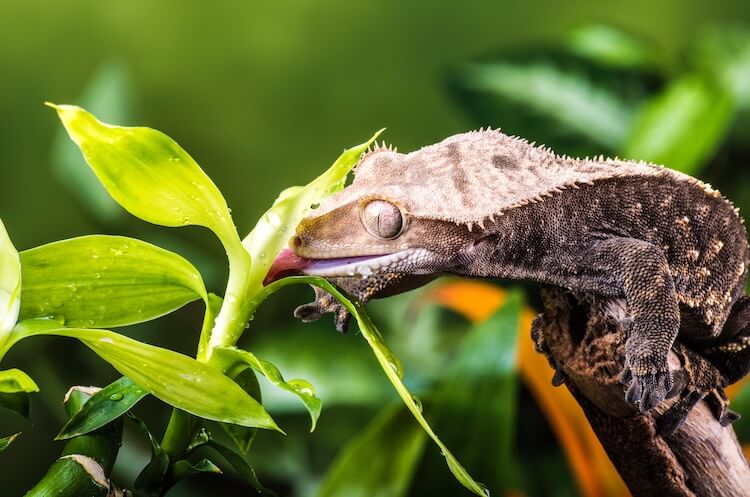
If you’re a seasoned breeder or the proud owner of a captivating crested gecko, you’ve likely encountered a symphony of sounds emanating from your petite companion, especially during those quiet, moonlit nights. From squeaks and screams to chirps, barks, and even clicks, these seemingly mysterious vocalizations are not just random noises; they are the gecko’s way of conveying its emotions, needs, and sometimes, ailments.
The Scream: A Cry for Safety
It may sound implausible that these diminutive creatures can produce loud screams, but that’s precisely what makes it an effective defense mechanism. In the wild, when threatened by predators, they let out a piercing scream. This sudden noise often bewilders the predator, providing the gecko a vital window for escape. In captivity, if your gecko screams, it’s signaling distress, pain, or a desire for solitude. These skittish creatures prefer minimal handling, so a scream may be their way of saying, “Leave me be.”
Interestingly, studies from as far back as 1976 noted that excessive handling can lead to geckos becoming vocally expressive about their discomfort.
Squeaks: Expressions of Surprise and More
Squeaking, a milder version of the scream can signal mild distress, fear, or even surprise. When caught off-guard, it might emit a squeak as a reflexive response. However, it’s not all about stress; these noises can also serve as mating calls. Female often squeak to express interest in a potential mate, while males may initiate courtship with a soft squeak.
Recent research in 2013 underscores the role of squeaking in indicating distress more frequently than being a mating signal.
Chirps: The Universal Language of Crested Geckos
Chirping is the cornerstone of gecko communication. It serves multiple purposes, from general interaction to announcing their presence, warning of threats, and expressing interest in potential mates. Also, can be especially common in breeding environments, where both may serenade each other during courtship. The sound is produced by rubbing the toe pads of their hind legs together, signifying excitement or agitation.
Whistles: Intimate Calls and Social Interaction
Lesser-known but equally fascinating are crested gecko whistles. Whistling is a means of social interaction among geckos and can signal readiness for mating. Female in heat often use soft whistles to respond to a male’s advances discreetly. These subtle sounds are intended solely for the ears of their approaching suitor, making them a private language of love.
Clicks: Warning Signs and Post-Meal Pleasure
Clicking, produced by the gecko’s teeth meeting, is a versatile noise. It can signal threats, territorial boundaries, or even post-meal satisfaction, akin to a human’s contented lip-smacking after a delightful meal. However, excessive licking may indicate health concerns, such as respiratory infections. When in doubt, consulting a veterinarian is a wise move.
Understanding their vocal repertoire of them adds depth to your relationship with these enchanting creatures. It’s a language of emotions and intentions, and as a caregiver, deciphering their subtle signals ensures the well-being of your beloved gecko. So, next time you hear your pet speak, listen closely; it’s sharing more than just noise—it’s revealing its inner world.
Unveiling the Why Behind Crested Gecko Vocalizations
Let’s decode the cryptic language of crested geckos and uncover the underlying reasons.
1. Communication: The Universal Chorus
They are inherently communicative beings. They use an assortment of vocalizations to convey messages to their fellow geckos. Chirping and squeaking are their linguistic tools for announcing their presence, signaling potential threats, and issuing tantalizing mating calls. It’s their way of maintaining social harmony and ensuring their own safety.
2. Pain: The Silent Sufferer’s Cry
As vigilant pet owners and breeders, we must listen closely when our geckos vocalize. Sometimes, these sounds can be an indication of pain or suffering. Perhaps it has sustained an injury or is grappling with an underlying issue causing distress. In such moments, their vocalizations become a plea for help, a way of communicating their discomfort.
3. Choking: A Lifesaving Alert
When your gecko produces noises from its mouth, it’s crucial to pay immediate attention. These sounds may signal a choking or breathing difficulty. In these critical situations, swift action is paramount—consulting a veterinarian can be a lifesaving decision. Being attuned to your gecko’s vocal cues can be the key to their well-being.
4. Happiness: A Joyful Serenade
a contented gecko, frolicking with exuberance, chirping merrily as it explores its habitat. These delightful sounds often signify pure happiness and excitement. Keep an eye on body language. If it appears relaxed, carefree, and cheerfully vocal, you can rest assured that your pet is simply having a fantastic time.
Unlocking the Mystery of Crested Gecko Clicking
Let’s dive into the intriguing world of crested gecko clicking and its various meanings.
1. Feeling Threatened: A Defense Mechanism
Although they employ clicking as a defense mechanism when they perceive threats or are in a state of fear or distress. This clicking sound is akin to their way of saying, “Back off, I’m not to be messed with.” In the wild, it’s a strategy to deter predators by surprising them with an unexpected noise from such a petite creature.
2. Respiratory Infection: A Health Concern
Excessive licking, beyond the usual range of gecko vocalizations, can be cause for concern. It may signal an underlying health issue, particularly a respiratory infection. In such cases, the gecko’s clicking is a symptom of respiratory distress, indicating the need for prompt veterinary attention. Monitoring behavior and consulting a vet if you suspect illness is crucial for their well-being.
3. Post-Meal Pleasure: Savoring a Feast
In a serene environment without apparent threats or health concerns, clicking might simply be your gecko’s way of expressing contentment. It’s akin to humans smacking their lips after a satisfying meal or a refreshing drink. In this context, it signifies a delightful gastronomic experience, a sign that they is enjoying life and its nourishment.
Preventing Excessive Vocalization in Your Crested Gecko
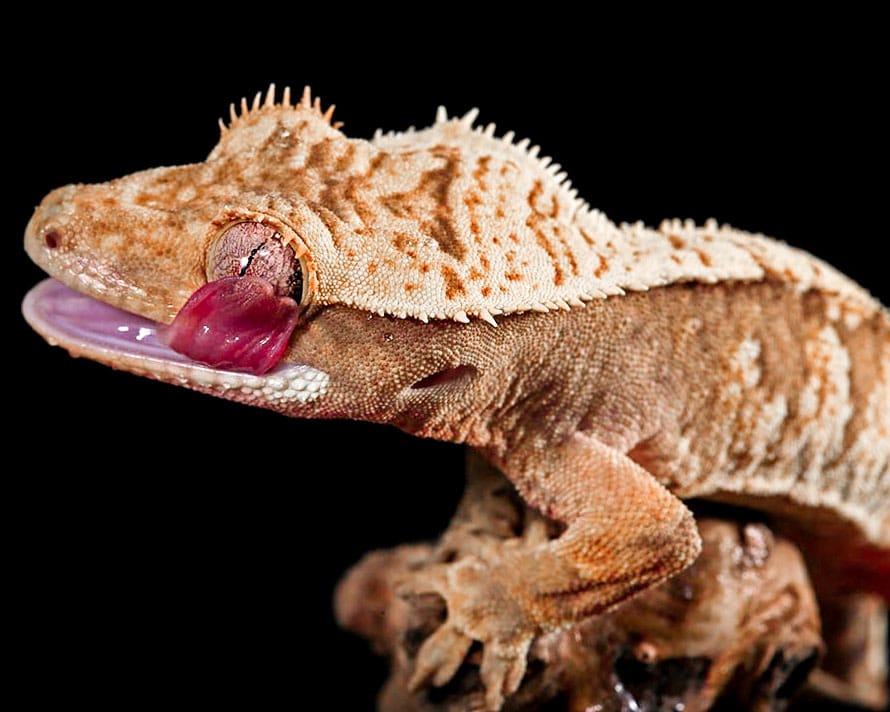
Here are essential guidelines to ensure your efforts in socialization do not provoke distressing vocalizations:
Approach with Caution: Avoid descending upon from above, as this resembles a predator’s approach. Instead, approach them from the side to minimize their stress.
Short Sessions: Keep handling sessions brief, lasting approximately 5-10 minutes each time. This prevents overwhelming your buddy and allows them to gradually adapt to your presence.
Gentle Handling: Never apply excessive pressure or constrain movement or breathing while handling them. Do it with utmost care to build trust.
Safe Environment: Handle it over a soft, cushioned surface to break their fall if they become agitated and attempt to escape from your hands.
Positive Reinforcement: Offer a tempting treat, such as Repashy Grubs’ N’ Fruit, after each handling session to associate your presence with positive experiences.
Minimize Disturbances: Maintain a quiet, calm environment during interactions, avoiding sudden movements or loud noises that might startle.
Provide Hiding Spots: Furnish your gecko’s enclosure with hiding spots, allowing them to seek shelter and recover from the stress of handling.
FAQS
Are crested geckos noisy at night?
No, Crested geckos are typically quiet at night and prefer a calm, dark environment for sleep.
Are geckos noisy at night?
No, Most gecko species are not noisy at night. They are generally quiet and nocturnal.
What noises do geckos make?
Geckos can produce various noises, but the specific sounds they make vary by species. Crested geckos, for example, may chirp or bark.
Why does my crested gecko squeak?
Squeaking in crested geckos can indicate mild distress or surprise. It’s essential to handle them gently to prevent this vocalization.
Can geckos hear you?
Yes, Geckos have a sense of hearing, but their ability to perceive human voices is limited. They may react to vibrations more than sounds.
Do crested geckos like light or dark?
Crested geckos are nocturnal and prefer a dark or dimly lit environment during the day to mimic their natural habitat. They are more active at night.
Final words
In conclusion, my firsthand experience with crested geckos has illuminated the intriguing aspect of their vocal nature. These remarkable creatures indeed make noise, often expressing their emotions through distinctive chirping and barking sounds. As a gecko enthusiast, I’ve come to appreciate how these vocalizations provide valuable insights into their moods and behaviors, adding an extra layer of fascination to the world of crested geckos. Understanding and interpreting these sounds enriches the bond between keepers and their gecko companions, making every interaction a unique and rewarding experience.

